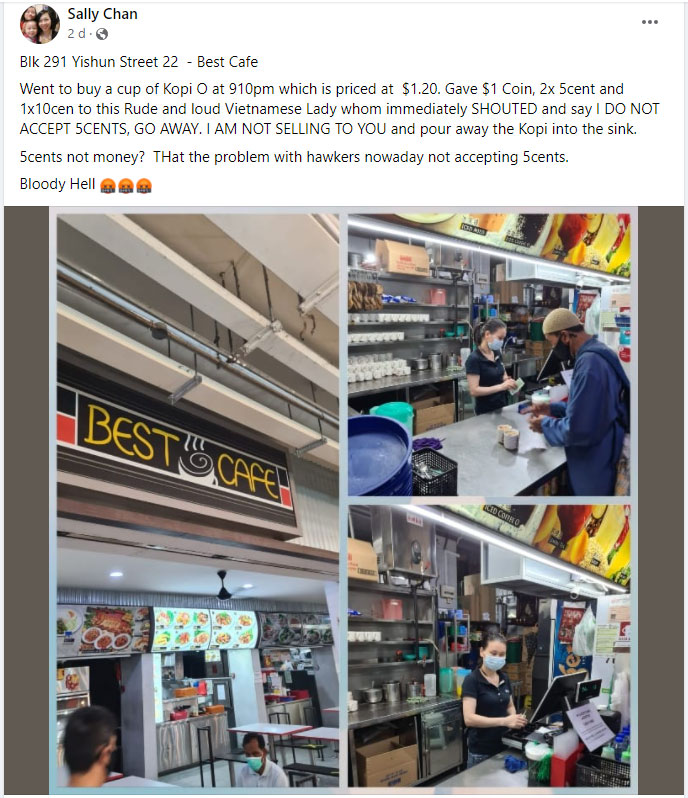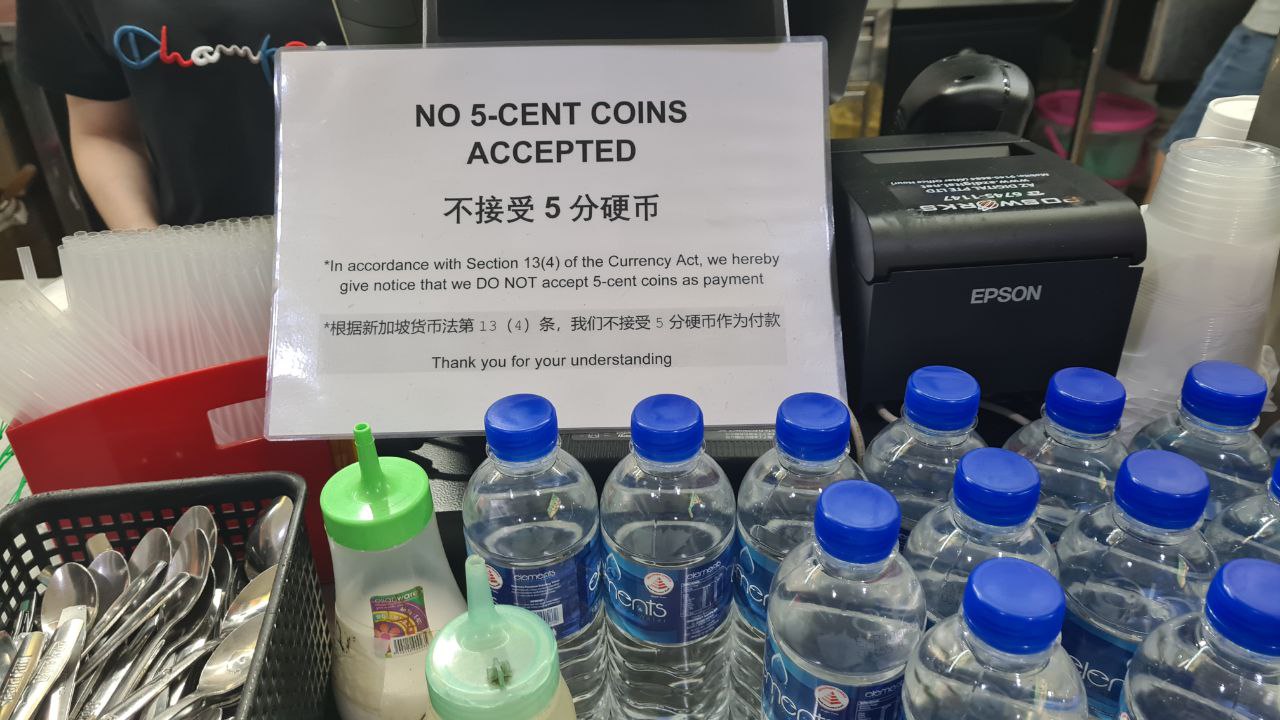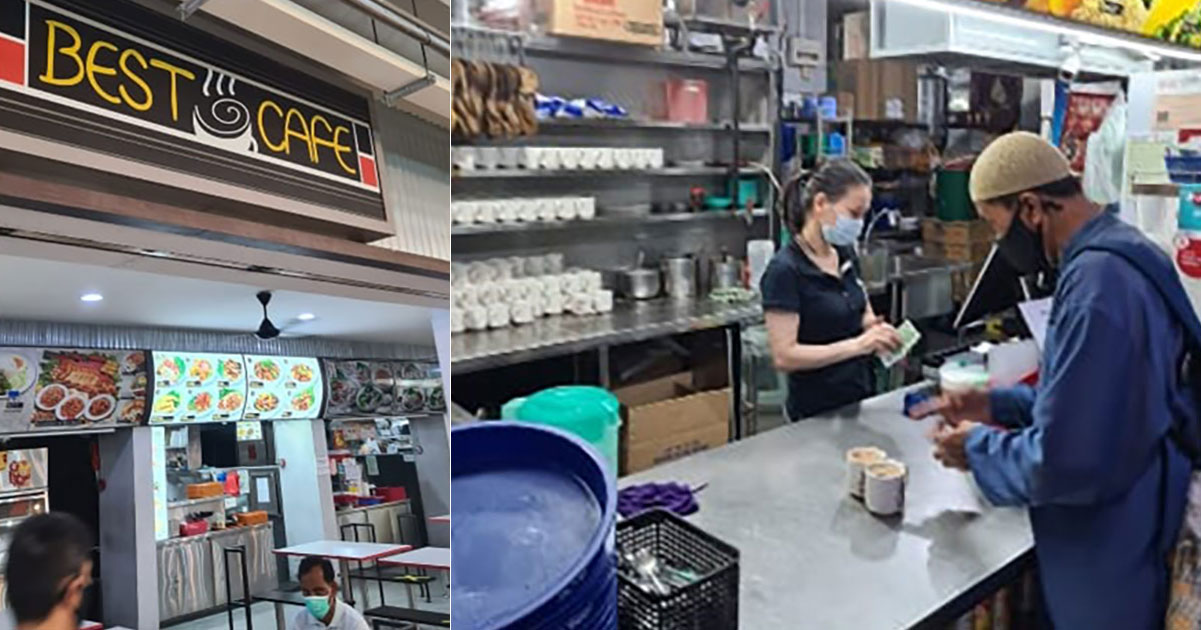Follow us on Telegram for the latest updates: https://t.me/mothershipsg
A patron at a coffee shop in Yishun has taken to Facebook on March 29 to complain about being shown attitude by the drinks stall assistant.

The short post claimed the drinks stall assistant was given a S$1 coin, a 10-cent coin and two five-cent coins as part of the S$1.20 payment for a cup of coffee.
However, upon being paid with the coins, the drinks stall assistant allegedly responded by pouring away the coffee into the sink instead of serving it to the customer.
The drinks stall assistant allegedly said: "I do not accept five cents, go away. I am not selling to you."
The caption of the post added: "Five cents not money? That's the problem with hawkers nowadays not accepting five cents."
The drinks stall has a sign that said it does not accept five-cent coins as payment.
The sign is not new.
 By Joshua Lee
By Joshua Lee
Five-cent coin legal tender
The issue of vendors accepting or rejecting five-cent coins as payment is perennial, even though five-cent coins have always been legal tender.
The Monetary Authority of Singapore has over the years issued its response regarding how customers and vendors can come to a consensus on accepting the coins for payment.
The MAS response has been consistent, as it advises vendors to put up a sign to clearly state its preferred method of payment to inform potential customers how they would like to be paid.
The official Currency Act of Singapore provides for a customer to make payment in all currency notes and coins, up to a limit of 20 coins per denomination for each transaction, MAS said in a 2020 response.
"However, the Currency Act also allows vendors to set a lower limit, or choose not to accept any denomination of currency coins or notes, provided that the vendor gives written notice to customers prior to a transaction," MAS added.
MAS views the payment for goods and services as essentially a contractual agreement between a willing buyer and willing seller.
As early as 2006, MAS had already said retailers can decline being paid in certain denominations as long as they are upfront about it by putting up signs on its premises.
Even though it may come as a surprise to some, the one-cent coins that remain in circulation in Singapore are still legal tender and can continue to be used as a means of payment for goods and services even after MAS stopped issuing them from April 1, 2002.
Follow and listen to our podcast here
If you like what you read, follow us on Facebook, Instagram, Twitter and Telegram to get the latest updates.
